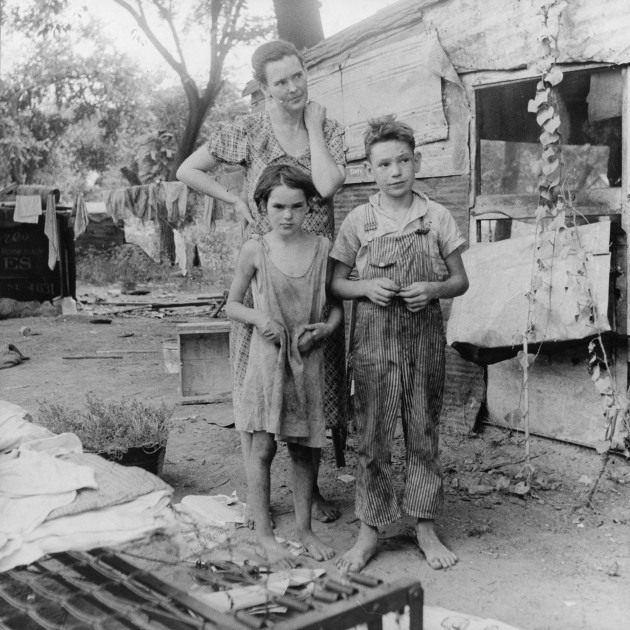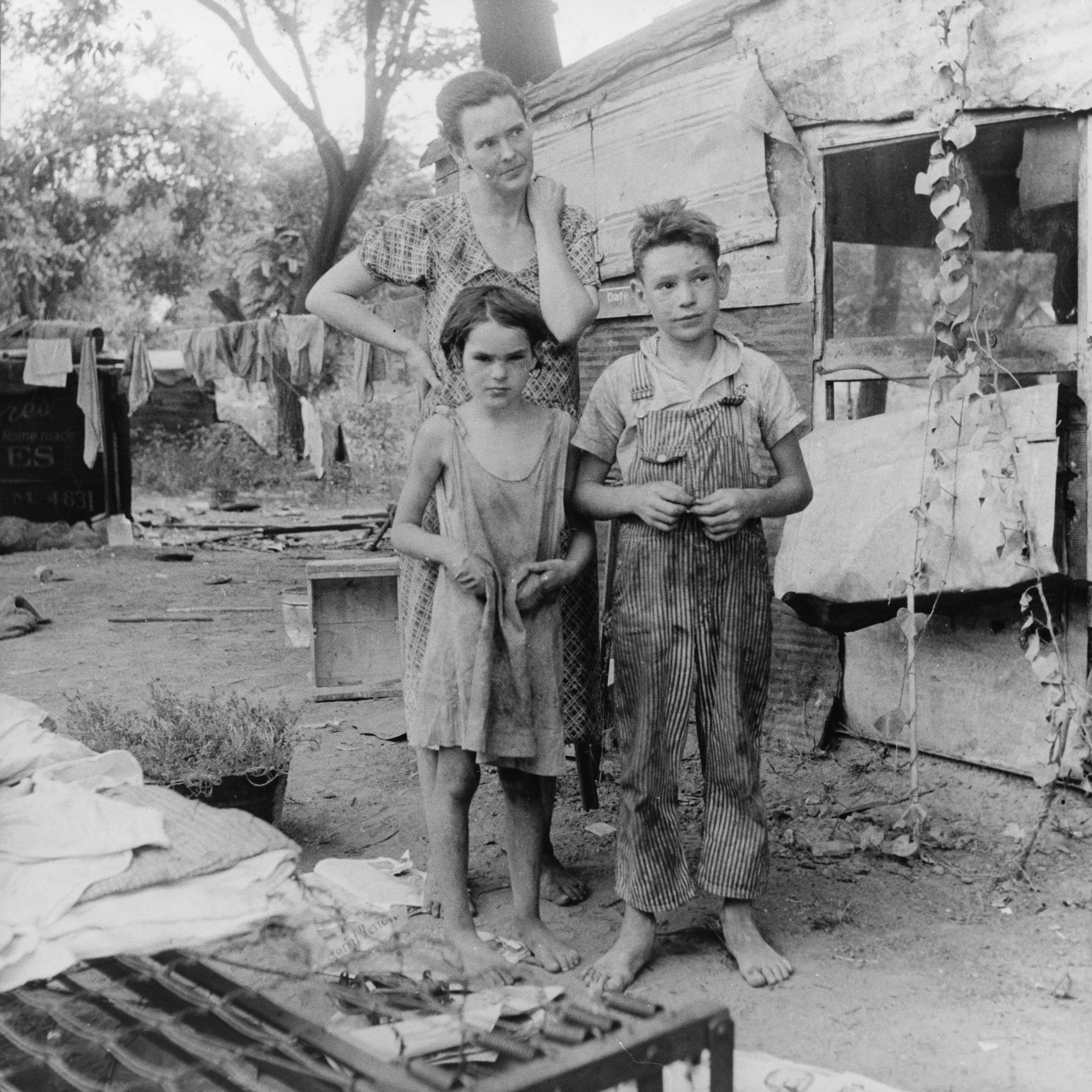This weekend, I traveled several hundred miles to visit one of my grandmothers, who hosted a family dinner. On the drive, we went through some extremely poor communities; places where a family of four or five might live in a $22,000 house. This caused me to think about poverty for the past couple of days. Specifically, it made me think about income inequality.
We’ve talked about income inequality in the past. We’ve talked about how income inequality is probably arbitrarily overstated as a result of the large increase in single parent households among the poor. We’ve also looked at the reason income inequality will always exist. However, one of the big lessons that I have tried to teach you over the years is not to confuse cause and the effect. Otherwise, you can draw faulty conclusions that are counter-productive to your end goal.

Income inequality used to be because of large differences in net worth as the so-called capitalist class sat back and acquired more of the productive means of a nation. Today, a significant portion of income inequality is the result of a knowledge and education gap that allows those who create, produce, and generate content or ideas to reap nearly all of the rewards in a winner-take-all payout system made possible by technological scalability. Perhaps the image of Mr. Monopoly should be replaced with the picture of a doctor from John Hopkins or a young technology startup in a garage.
The most visible example of this mistake in the media today is the current discussion of income inequality. Too many people are still seeing the world as it was structured, not how it is structured.
Income inequality is a symptom. To the extent that it really is increasing (and it is), the cause is mostly a by-product of the conflagration of the Information Revolution, globalization, and increased personal freedom (the latter of which requires its own post), which are burning the foundations of the Industrial Revolution to the ground and replacing it with a new world economic order. Add to that the ramifications of perfectly natural assortative mating in a world of easy travel and mobile populations, and you have a real recipe for discontinent among the proletariat.
An Example of How Winner-Take-All Models Are Now Inextricable From the Economy, Leading to Greater Income Inequality
In generations past, if I wrote a mega besteller fiction book that sold 1 million copies at $30 retail per copy in current dollars, I would be lucky to see pre-tax royalties of $3,000,000. The other $27,000,000 would have gone to local bookstores throughout the United States, retail workers, literary agents, editors, publishers, the stockholders in all of those firms, the timber workers who cut down the trees, printers who ran the printing presses, drivers who shipped boxes from state to state, gas companies that fueled those trucks, and finally, to me, the author. Everyone along the supply chain, each little stop, got a bite at the apple; a cut of the cash my idea generated. Roughly 10¢ of every dollar would have found its way into my pockets.
[mainbodyad]Today, if I wrote the same book and self-published it through Kindle or iTunes, I would keep between $19,500,000 and $21,000,000 of the earnings pre-tax with the other $7,000,000 going to the content distributor (Amazon or Apple). Roughly 65¢ to 70¢ of every dollar now finds its way into my pockets. There are no local bookstores. There is no timber to be cut. There are no drivers to ship finished books. There are no janitors cleaning the floors of the retail shop. It’s all electronic.
As President Obama pointed out in his State of the Union address, all of the jobs that used to be the foundation of the poor and middle classes are now replaced by technology. The money flows, instead, to the handful of people that come up with the ideas. That dynamic is going to expand as technology accelerates. Those who are excellent at management or another skill will be able to oversee larger and larger domains, resulting in less opportunities and pay for those who don’t have their talents. The world is going to be increasingly run by a handful of intellectual elites who build space stations, program complex software systems, and generate new entertainment mediums. There is no way around this winner-take-all system that I can see. There will be very good, incredibly high paying opportunities and there will be menial task work that pays so poorly it will be impossible to raise a family. As much as I hate it, it turns out that Consumer Hourglass Theory is probably correct.
It isn’t anything new. The Luddite social movement of England in the 19th century destroyed mechanical looms for fear of destroying their livelihood. It did, but their children found work in other industries. The same thing happened when we switched from whale fat, to kerosene, to oil as a primary energy source.
We Shouldn’t Just Accept Income Inequality, Though It Should Not Be Our Primary Concern
What I care about more than income inequality is the absolute standard of living of the poorest Americans who are willing and able to work. Can they heat their homes? Can they afford food? Do they have clean water? Is there access to quality education? If I could end hunger in America overnight for poor children, I’d gladly triple the gap between the rich and the poor, but that is because I care about absolute bottom-line results. My goal is not for everyone to feel equal, but for the poorest to live better than they already do so they have more opportunity.
The challenge of such an approach is that it would likely cause significant loss in social cohesion. Too many people are irrational. Here in the United States, we classify a married couple with two children at home, who earn $45,000 per year, as below the poverty line despite that same economic unit ranking in the top 1.72% of global income! It is envy-driven insanity.
I Don’t Have a Solution to Income Inequality
None of this is new. We’ve talked about it all before but it is still on my mind because I am trying to answer the one, basic question: How do we fix it?
The only way I know is investing in high quality education that identifies the best and brightest early in life regardless of the socio-economic status of their parents, and prepares them for the knowledge-based economy. The trouble is, throwing money at schools doesn’t do any good. Look at the Kansas City district. A lawsuit resulted in it becoming one of the richest school districts in the world and it still produces some of the worst student competency rates.

I don’t think we will return to the poverty of the 1930’s, but I do think we risk a society of has and have nots, mostly coming from differences in cognitive ability as a result of the knowledge economy. It will be a lot easier, in my opinion, for the children or someone who is successful to fall into poverty if they lack the same abilities.
That still leaves the bottom 50% to 80% of civilization. I don’t know how we change society enough to turn an alcoholic, chain-smoking high school drop-out with low cognitive ability, living in a trailer park and drowning in credit card debt, into a productive adult who can take pride in his work and have a sense of purpose in life. The factory jobs that once gave that type of person meaning, not to mention quality pay and health care benefits, are gone. They are never coming back because they can be automated with technology. On the other hand, I could never support transfer payments from the smart, hardworking people like doctors, lawyers, accountants, and engineers on moral and ethical grounds; to do so would show a complete lack of empathy for the years of dedication, struggle, and effort they put into medical school, law school, internships, training, and coursework.
[mainbodyad]Very few problems in life stump me. As we drove through the countryside, looking at the shoddily constructed fiberboard homes with pickup trucks in the driveway and broken plastic toys in the brown-dirt patch lawns, I felt perplexed. I don’t know how to fix it. I don’t see how to save most of the people in this demographic group from the hurricane of global economic changes that cannot be reversed.
Why should it bother me? I wish it didn’t, but it does. I write because I want to help people. If a few thousand go from poverty to significant wealth because of my work, I will consider it worth the payoff. It’s just a drop in the ocean, though. It makes me feel like the kid and the starfish.



